1. Obsession With Football
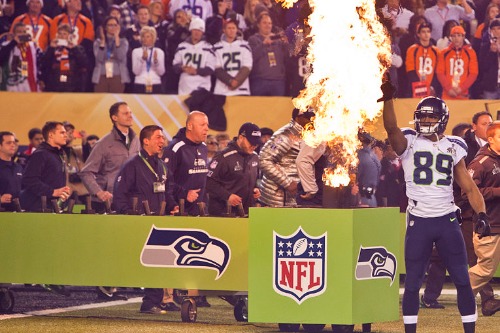
Football holds an almost religious status in America. While much of the world knows football as a game played with a round ball, the American version involves touchdowns, end zones, and hard-hitting tackles. The National Football League (NFL) dominates Sundays, and the Super Bowl has become a de facto national holiday. The Washington Post even went as far as to claim that the NFL was a mirror of American society in an article. Families and friends gather together to enjoy the game, watch the extravagant halftime show, and indulge in unhealthy snacks. College football has an equally passionate following, with fan bases that rival those of professional teams. Entire towns and communities revolve around their local college teams, and rivalries are a serious matter.
The culture of football in the U.S. extends beyond the game itself. Tailgate parties—where fans cook, drink, and socialize before a game—have become a major part of the experience. Fantasy football leagues, where participants act as team owners and managers, also attract millions of fans. The deep emotional investment in football, from players to fans, makes it impossible to ignore. The constant barrage of football-related commercials, events, and media coverage ensures that the sport remains at the forefront of American life. It’s clear that when it comes to football, Americans are deeply obsessed, and this stereotype is more than true.
2. They Love Their Guns
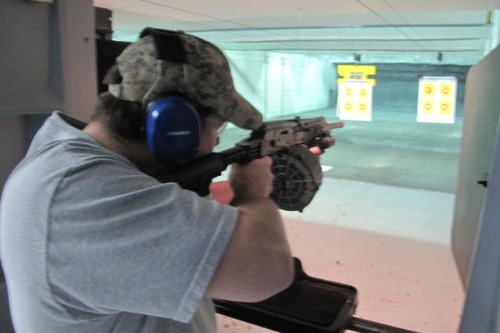
Gun culture in America is deeply ingrained, and the statistics make this stereotype undeniably accurate. With more guns than people in the country, firearms are a regular part of American life, according to The New York Times. From hunting traditions to personal defense, the gun culture spans across political, cultural, and geographical divides. The debate over the Second Amendment, which protects the right to bear arms, remains a divisive issue, with strong proponents on both sides. Gun ownership is often seen as a symbol of personal freedom and self-reliance, which only strengthens the stereotype of Americans’ love for firearms.
Beyond the politics, guns are an integral part of American recreational activities. Hunting, shooting sports, and gun collecting are widely enjoyed, especially in rural areas. Gun shops and shooting ranges are common, and many Americans learn to shoot at a young age. While safety regulations vary by state, gun culture is so ubiquitous that even those who don’t own firearms are often familiar with them. Whether it’s a rite of passage for young Americans or a tool for self-defense, guns play an undeniable role in shaping the American identity.
3. Over-the-Top Patriotism

If there’s one thing that stands out about Americans, it’s their unabashed love for their country. From waving flags to singing the national anthem at sporting events, the sense of national pride is impossible to ignore. The Guardian explains that it’s different to any other country’s sense of patriotism, and that it’s deeply ingrained in society. On holidays like the Fourth of July, Americans go all out, donning red, white, and blue clothing, participating in parades, and watching fireworks light up the sky. The entire country comes together to celebrate the nation’s history, which reinforces the stereotype of Americans being relentlessly patriotic.
For many Americans, patriotism isn’t limited to national holidays. It’s a year-round commitment, evident in the overwhelming support for military personnel and veterans. “USA! USA!” chants during international sporting events are commonplace, signaling just how proud Americans are of their homeland. While some people from other countries may find it excessive, for many Americans, this level of patriotism is just a part of their identity. Whether it’s in casual conversation or public celebrations, it’s clear that love for the country is an ever-present and loud part of American culture.
4. Loud and Proud
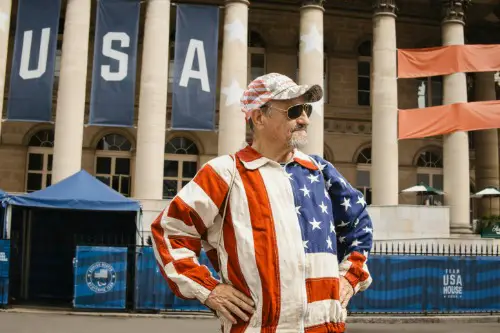
Americans have a reputation for being loud, and in many cases, this stereotype rings true. At least according to The New York Post. It’s not just about volume—Americans are known for their confidence and willingness to speak their minds. This often translates into loud conversations in public spaces, from bustling restaurants to crowded streets. In a culture that values individualism and self-expression, it’s not surprising that people are often unafraid to raise their voices. For visitors from quieter countries, the constant noise can be overwhelming, yet it’s seen as a sign of openness and comfort in the U.S.
The loudness of Americans is also reflected in the public sphere, from politics to entertainment. In the media, American television shows and movies often feature characters who speak their minds without reservation, reinforcing the image of boldness and audacity. American sports events are filled with the roar of enthusiastic crowds, and even in casual settings, it’s common for people to engage in animated discussions. While it may seem overwhelming at times, for many Americans, being loud is simply a part of the vibrant culture of expressing oneself with passion and energy.
5. Fast Food Fanatics

Americans have an undeniable love for fast food, and it’s a stereotype that’s very much alive today. The fast food industry, birthed in the U.S., has become a global phenomenon, with chains like McDonald’s, Burger King, and Taco Bell offering quick meals to the masses. Whether it’s grabbing a quick burger between meetings or indulging in a late-night snack, fast food is a staple of American life to the point where it is unhealthy, CBS News warns. It’s not just the availability, but also the convenience that has led to a near-obsession with these foods. Drive-thrus are ubiquitous, allowing people to grab food without ever leaving their cars.
However, the fast food craze isn’t without consequences. The convenience and affordability of fast food have contributed to growing concerns over health, particularly with rising obesity rates. Many Americans struggle with poor eating habits due to the easy access to greasy, high-calorie options. Despite the increasing popularity of healthier food trends, fast food remains deeply ingrained in the American diet. The stereotype of fast food obsession isn’t just about food; it’s a reflection of the American love for convenience and instant gratification.
6. Tipping Culture Confusion

In the U.S., tipping is an essential part of service culture, and for visitors from countries where tipping isn’t expected, it can be a confusing practice. Americans often tip for everything—whether it’s a meal at a restaurant, a taxi ride, or even a hotel bellboy. This custom is rooted in the belief that service workers should be rewarded for their efforts, but it can create awkward situations for tourists who aren’t accustomed to tipping. In some cases, tipping can even feel like an obligation rather than a gesture of appreciation.
The expectations surrounding tipping can be particularly puzzling because the amounts are often not fixed. A standard restaurant tip might be around 15–20%, but the amount varies depending on the type of service and setting. Some Americans go so far as to tip for things that people in other countries would never consider—such as a barista or someone handing over a coffee order. As a result, confusion and frustration often arise when visitors realize that tipping isn’t just a polite gesture, but an integral part of the economy in the U.S.
7. Workaholic Tendencies

Americans are often seen as workaholics, and the stereotype is not far from the truth. While work ethics vary from person to person, the culture of long hours and hustle is deeply embedded in American society. In the U.S., the concept of “living to work” is much more prevalent than “working to live.” The typical American worker often faces long workdays, limited vacation time, and high expectations of productivity. Many employees feel pressured to remain available around the clock, checking emails and making phone calls even outside of working hours.
The lack of paid vacation time exacerbates the issue, as many Americans don’t take full advantage of the time off they are entitled to. In fact, a significant number of workers leave their vacation days unused. This relentless work culture can be exhausting, but it’s also celebrated as a badge of honor in many industries. There’s an expectation that success requires constant effort and the willingness to sacrifice personal time. The American work ethic has given rise to the stereotype of Americans being work-obsessed, and for many, this reality rings true.
8. Big Portions, Bigger Waistlines

The stereotype of American portion sizes being excessively large is undeniably true, and it’s a major contributor to the country’s obesity crisis. From massive burgers to towering plates of pasta, Americans are known for their love of oversized servings. In fact, it’s common for restaurants to offer “super-sized” meals that are often enough for two people. For those dining out in the U.S., it’s almost expected to receive more food than one can comfortably finish in one sitting. As a result, leftovers are a regular part of dining, with many Americans bringing home bags of food from their meals.
However, the abundance of food has also led to concerns about health. With the availability of high-calorie, oversized meals, many Americans struggle with weight issues. The stereotype of large portions is directly linked to the rising obesity rates across the country. Though there are efforts to promote healthier eating habits and smaller portion sizes, the culture of excess is deeply ingrained. The stereotype may be seen as a reflection of American values like abundance and convenience, but it also underscores the challenges posed by the nation’s relationship with food.
9. Lack of Public Transit
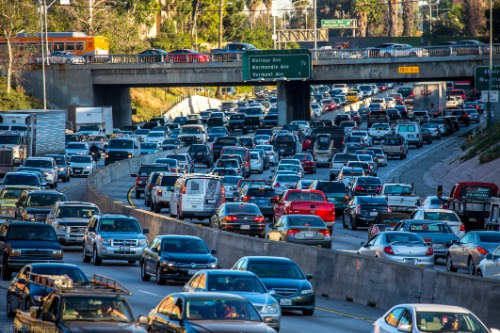
In many American cities, a car is not just a convenience—it’s a necessity. Unlike in many parts of the world, where reliable public transportation systems provide easy access to work, school, and social activities, Americans are often forced to rely on their own vehicles. This lack of effective public transit infrastructure has led to heavy traffic congestion, pollution, and an over-dependence on fossil fuels. While larger metropolitan areas like New York City or San Francisco offer some public transport options, many other regions, especially in suburban and rural areas, have little to no public transit system.
The car culture in America is so ingrained that owning a vehicle is seen as a rite of passage for many young people. The convenience of driving wherever and whenever you need is a significant part of American life, but this also means that public transit isn’t a priority. Cities often lack funding for infrastructure improvements, and residents become used to their daily commutes in their own vehicles. The idea of hopping on a bus or train to get to work is a foreign concept in much of the country, which is why the stereotype of a car-obsessed America persists.
10. Reality TV Addiction
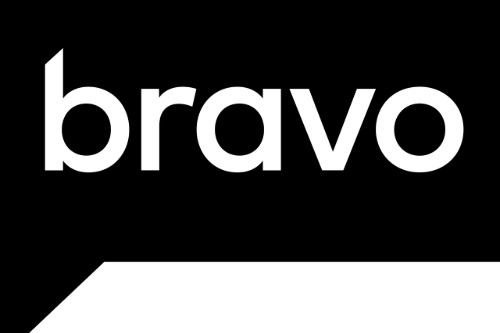
Reality TV shows have become a staple of American entertainment, and this stereotype isn’t difficult to believe. Programs like The Kardashians, Survivor, and The Bachelor dominate television networks and have a massive following across the country. These shows, often featuring ordinary people thrown into extraordinary circumstances, are designed to entertain with drama, competition, and shocking moments. Americans can’t seem to get enough of the emotional highs and lows, and the more outrageous the show, the better. These programs become cultural touchstones, with characters and moments referenced in everyday conversation.
Though some may dismiss these shows as trashy or shallow, they have undeniably become a part of American pop culture. Reality TV serves as a form of escapism for many, offering a window into the lives of others that can be both fascinating and, at times, appalling. Reality TV often reflects the American obsession with fame, success, and drama, which keeps viewers glued to their screens. While the content is often criticized for being overly scripted or sensationalized, it still dominates the airwaves and plays a key role in shaping American entertainment tastes.
11. “Bigger Is Better” Mentality
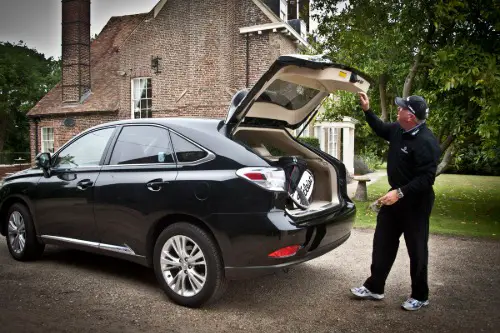
Americans are known for their “bigger is better” mentality, and it extends far beyond just food portions. From massive homes to oversized cars, Americans have a tendency to go all out when it comes to size. The SUV is a prime example of this; while many countries opt for smaller, more fuel-efficient vehicles, the American love for large, powerful cars is well-known. This obsession with bigger is reflected in architecture as well, where sprawling homes with expansive lawns are seen as the ultimate sign of success. A small apartment or modest home simply doesn’t have the same cultural cachet as a large, suburban house with a picket fence.
This “bigger is better” philosophy can also be seen in consumer products, from colossal televisions to gigantic servings at fast-food chains. The American dream, for many, revolves around achieving the largest, most impressive possessions. Whether it’s buying a luxurious car, building a sprawling mansion, or indulging in excessive portion sizes, Americans often equate size with success. While this mindset may seem excessive to those from more minimalist cultures, it’s a defining characteristic of American culture, one that shapes the way people live, buy, and even think.
12. Bad Coffee Habits

When it comes to coffee, Americans have developed some rather unique habits that often baffle those from coffee-centric cultures like Italy or France. Many Americans prefer their coffee weak and heavily diluted with milk, sugar, or flavored syrups. The popularity of chains like Starbucks has contributed to a rise in drinks that are more like desserts than actual coffee, with caramel macchiatos, Frappuccinos, and pumpkin spice lattes becoming signature items. These drinks often contain as much sugar and milk as they do coffee, turning what is supposed to be a quick energy boost into a sweet treat.
Despite the rise of artisanal coffee shops and a growing coffee culture, the stereotype of Americans preferring sugary, weak coffee still holds true for many. While it’s become fashionable to seek out single-origin beans or pour-over brewing methods, the average American’s coffee habits are still centered around convenience and sweetness. The grab-and-go coffee culture, where people quickly pick up a large cup of coffee at a drive-thru, is also a huge part of American life. While the specialty coffee movement is growing, the stereotypical image of weak, sugary coffee continues to linger in the minds of many outside the U.S.


